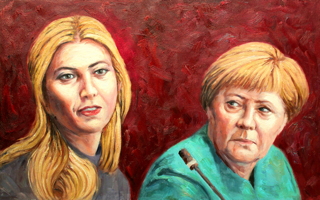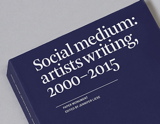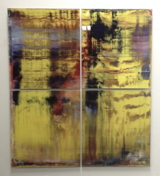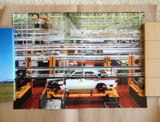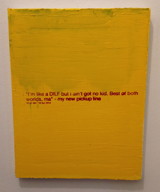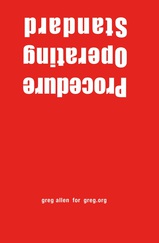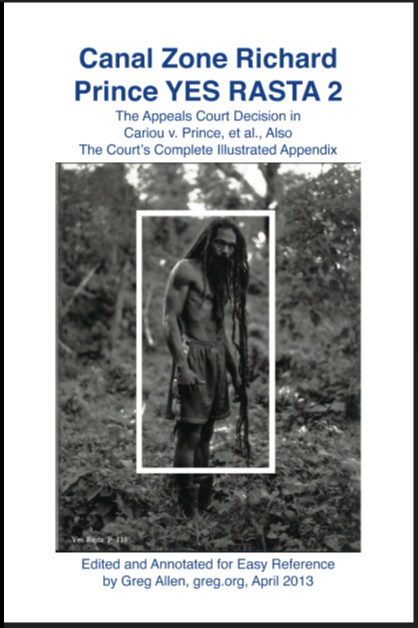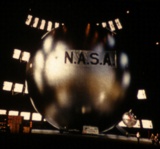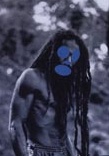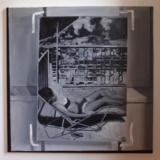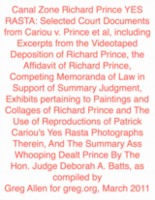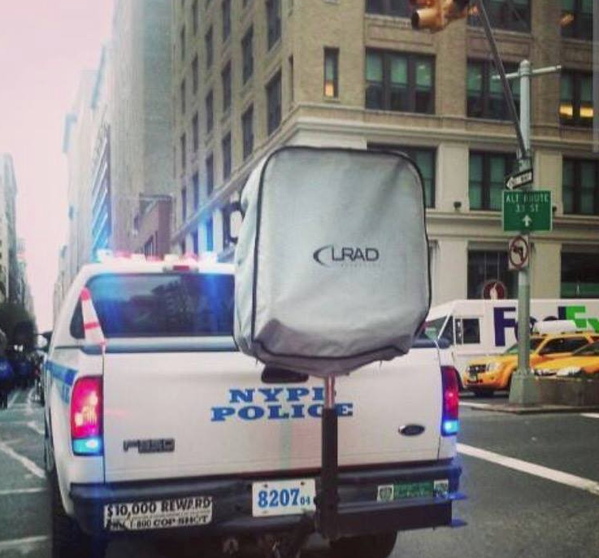
Installation view: Protestors' Folding Item (LRAD 500X/500X-RE), ink on Cordura, nylon webbing, LRAD, 2014, Collection: NYPD Order Control Unit
NYPD used an "LRAD" sound cannon today on high school students who staged a Ferguson walkout (via @SeismoMedia) pic.twitter.com/soUovemuUj
— Michael Tracey (@mtracey) December 2, 2014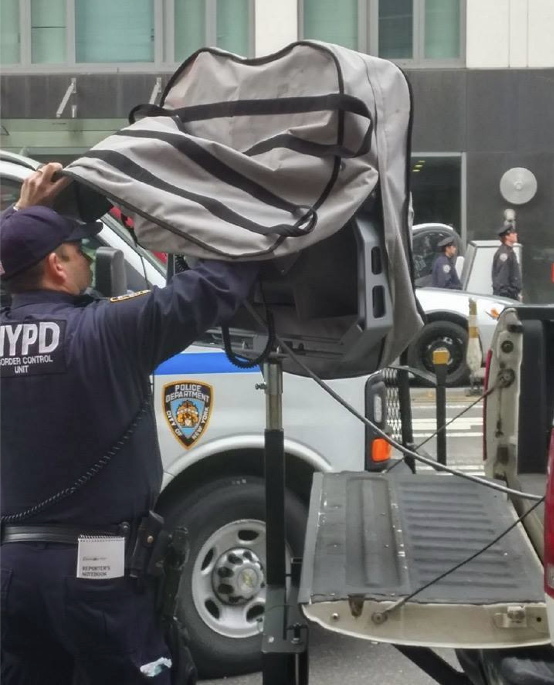
Installation view: Protestors' Folding Item (LRAD 500X/500X-RE), 2014, Collection: NYPD Order Control Unit
This is related to this: Traveler's Folding Item or, in French, Pliant de Voyage, an Underwood typewriter cover as Readymade by Marcel Duchamp.
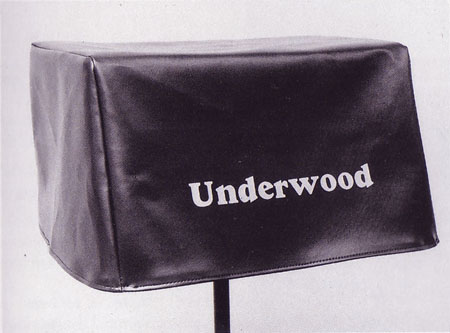
Traveler's Folding Item/Pliant de Voyage, 1964 Schwartz replica of the lost 1916 original
From Tout Fait,
On the most basic level, Traveler's Folding Item stands as a typical Readymade. It demonstrates the clear displacement of an everyday object from its original context and function. A cover with no typewriter for it to protect is utterly useless. It tempts the viewer to look underneath its skirt, and suddenly it takes on some very sexual meanings. Museums often strategically display the typewriter cover in a manner so as to tempt the viewer in this manner as if it were a woman's skirt. Joselit explains, "This item, which Duchamp identifies with a feminine skirt, should be exhibited on a stand high enough to induce the onlooker to bend and see what is hidden by the cover" (90). In this way, this Readymade acts as an invitation to voyeurism.You know what else is utterly useless and tempting? An LRAD with a cover on it. Which is why I am stoked to announce my latest work, Protestors' Folding Item, a series of LRAD covers, installed on LRADs.
What does it mean to declare LRAD covers a Readymade? Such a designation definitely does not hinge on my making them, or my cashing the checks for their sale. Sorry, flippers, they're only available to institutions. [Carlyle & Co. folks and the Zabludowiczes, call me, we can probably work something out.] If anything, it's a relief not having to worry about fabrication or sales. I can really just focus on the work. True, it takes some effort to gather documentation on venues and edition size, but it's not something a diligent registrar can't handle.
Given the interest my institutional collectors have in control, it also might be difficult to arrange loans to show them in galleries or museums. Which doesn't mean they won't be seen publicly. In fact, at the apparently increasing rate LRADs are being deployed, I'd say my CV is about to explode.
What would the legal implications be for my declaration of these Readymades? Could copyright or VARA or droit moral be used to assert control over the public display of these, my works?
In Alberta, Canada, an artist has fended off gas drilling and pipelines on his farm for eight years by copyrighting his land as an artwork [and by charging oil & gas companies $500/hr to discuss it]. Yves Klein once signed the sky.
According to my fabricator's website, "The LRAD 500X / 500X-RE systems [underneath Protestors' Folding Item] produces a sound pattern that provides clear communication over long distances. The deterrent tone can reach a maximum of 149 dB (at one meter) to influence behavior or determine intent." My work, too, is designed to provide clear communication, influence behavior, and determine intent. That's why they go so well together, like a glove on a hand. Really, they're inseparable. You can't have one without the other.
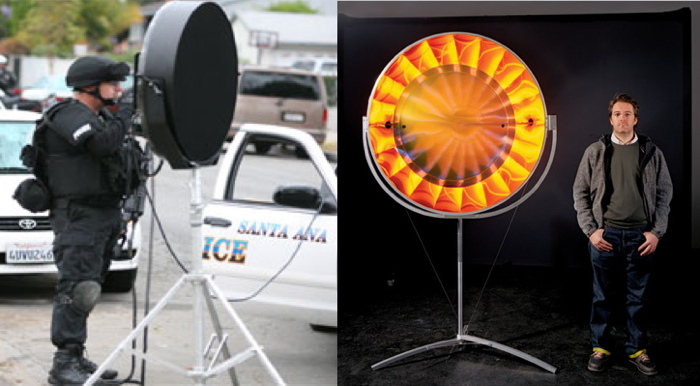
L: You Hear Me, 2007, R: Eye See You, 2006
"The art world underestimates its own relevance when it insists on always staying inside the art world. Maybe one can take some of the tools, methodologies, and see if one can apply them to something outside the art world," said Olafur Eliasson. In T Magazine. "If we don't believe that creativity as a language can be as powerful as the language of the politicians, we would be very sad -- and I would have failed. I am convinced that creativity is a fierce weapon."
I hope LRAD cover readymades, are too, and that collectors of my work will preserve its integrity by exhibiting it only as originally intended, with the covers on the LRADs.
17 U.S. Code § 106A - Rights of certain authors to attribution and integrity [law.cornell.edu]

